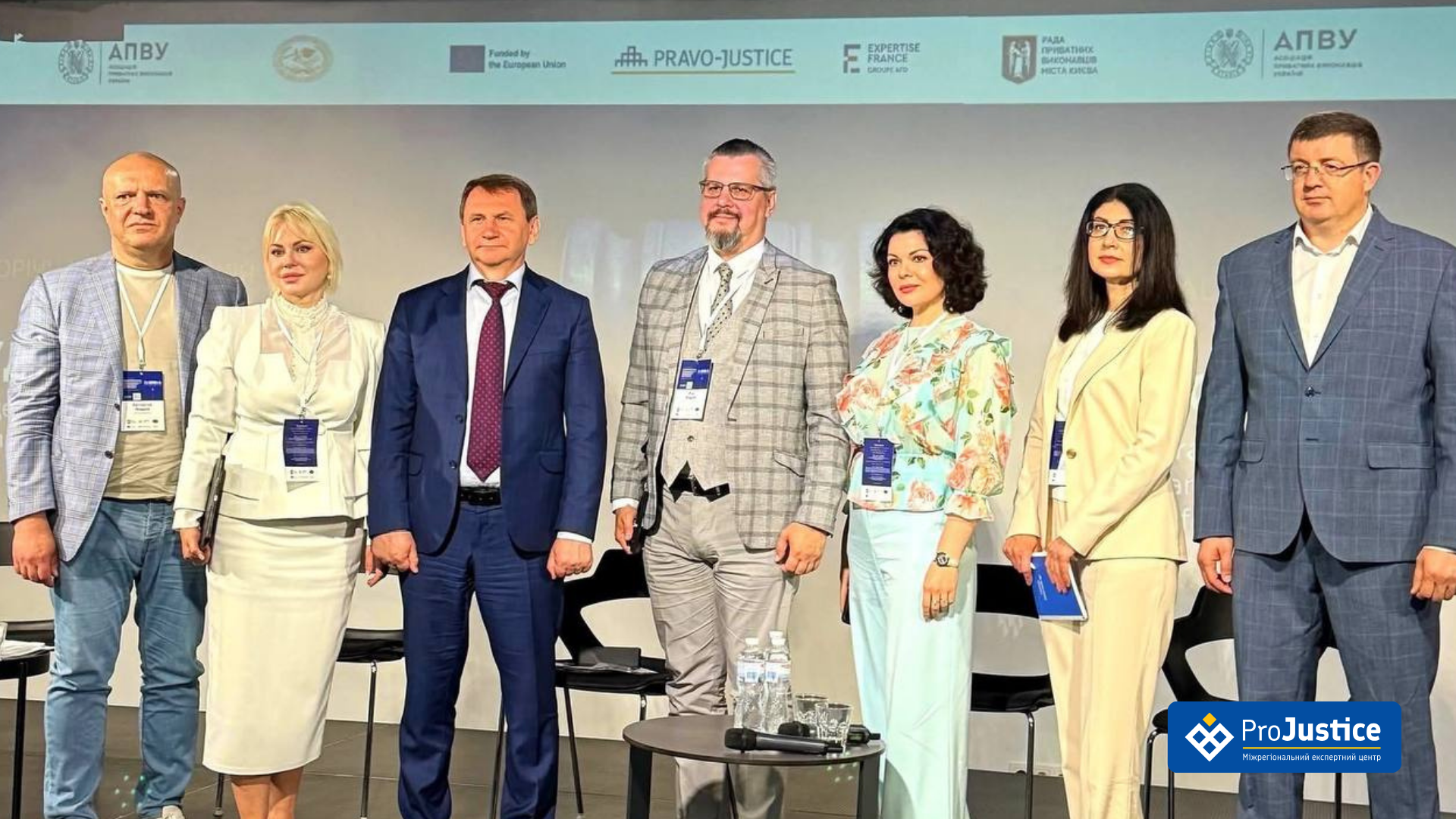Court practice in disputes related to mobilization and military service was discussed during the online event “90 Minutes on Law” organized by the Chernivtsi RLDC with the support of the EU Project “Pravo-Justice”.

Moderator of the event – Iryna Butyrska, PhD in Law, attorney at law, managing partner of Lex Advance Attorneys at Law, coordinator of the Chernivtsi RRRP
Guests:
- Andriy Ryshchenko, judge of the Dnipro District Administrative Court, coordinator of the Dnipro RRRP
- Volodymyr Horbalinskyi, PhD in Law, Deputy Chairman of the Dnipro District Administrative Court
Briefly about the issues raised during the event:
What procedural issues do courts face when considering disputes related to mobilization and military service?
The biggest challenge in handling such cases is proper communication with the parties to the case. First, incomplete or no contact information makes it almost impossible to notify military units in a timely manner of a claim and request evidence. This leads to an increase in the time for consideration of such cases.
The second important aspect is that the above-mentioned difficulties make it important to properly prepare a claim and to collect and prepare evidence in a quality manner. Sending inquiries, collecting written evidence, and properly executing claims and other documents requires a lot of effort and time. Therefore, parties to a dispute, especially plaintiffs, should use the services of lawyers.
How do I determine the proper grounds for granting a deferment from conscription during mobilization?
Article 23 of the Law of Ukraine “On Mobilization Preparation and Mobilization” defines an exhaustive list of persons who are granted a deferral, but does not provide for documents proving, for example, the fact that a parent is raising a child under 18 years of age on his or her own or is in constant care of another person, etc.
In such cases, experts advise to rely on the available explanations, in particular, from the State Border Guard Service of Ukraine on the Rules for Crossing the State Border by Ukrainian Citizens. These clarifications, of course, do not interpret the provisions of Art. 23, but can currently serve as an approximate guide to the required supporting documents. Relevant information can also be found in numerous court cases related to the above issues.
Are remedies allowed when appealing against a decision to mobilize?
The Code of Administrative Procedure of Ukraine does not allow suspension of an order or instruction issued by a commander (chief) to a serviceman under martial law or in combat circumstances. However, in some cases, courts have prohibited certain actions to move a person to another location for military service. In any case, in order for the courts to grant interim relief, it is necessary to prove the existence of an undeniable threat that will prevent the enforcement of the court decision in the future.
Can the courts oblige the State Border Guard Service to grant permission for conscripts to cross the border?
The issue of the limits of interference with the powers of the public authority remains controversial. The prevailing position is that, given a uniform procedure for the actions of a public authority, the court may oblige it to make a certain decision. At the same time, there is another practice when courts only oblige to consider the issue, but do not determine a certain procedure. At the same time, it should be remembered that at each border crossing, an authorized person of the State Border Guard Service of Ukraine is obliged to check the person’s documents and make a decision to allow or prohibit the crossing.
How can I appeal against the refusal to discharge from military service of persons who had grounds for deferment?
If we are talking about the proper way to protect the rights of persons who have been enlisted, then according to the current court practice, claims should be formulated in the form of recognizing inaction/unlawful actions regarding the results of the report consideration and demanding exclusion from the personnel. An exhaustive list of grounds for dismissal from military service during martial law is provided by Art. 26 of the Law of Ukraine “On Military Duty and Military Service”.
What is the average duration of disputes related to mobilization and military service?
If the court has the documents necessary for consideration and is able to notify the parties in time, it will consider such cases within a month or two.
To learn more, watch the full recording of the online event.
Reference:
The Regional Justice Reform Councils (RJCs) were established with the support of the EU Pravo-Justice Project and operate in Chernivtsi, Dnipro, Kharkiv, Lviv, Odesa regions and Donbas. To date, members of the Councils have been actively involved in the preparation of a draft law on mediation, amendments to the Bankruptcy Code, proposals to improve legislation on enforcement proceedings, the introduction of an electronic court, and discussions on the concept of transitional justice.
The RECs act as permanent working groups that promote the implementation of reforms in accordance with the bottom-up principle: by bringing region-specific challenges and their potential solutions to the level of central authorities.


